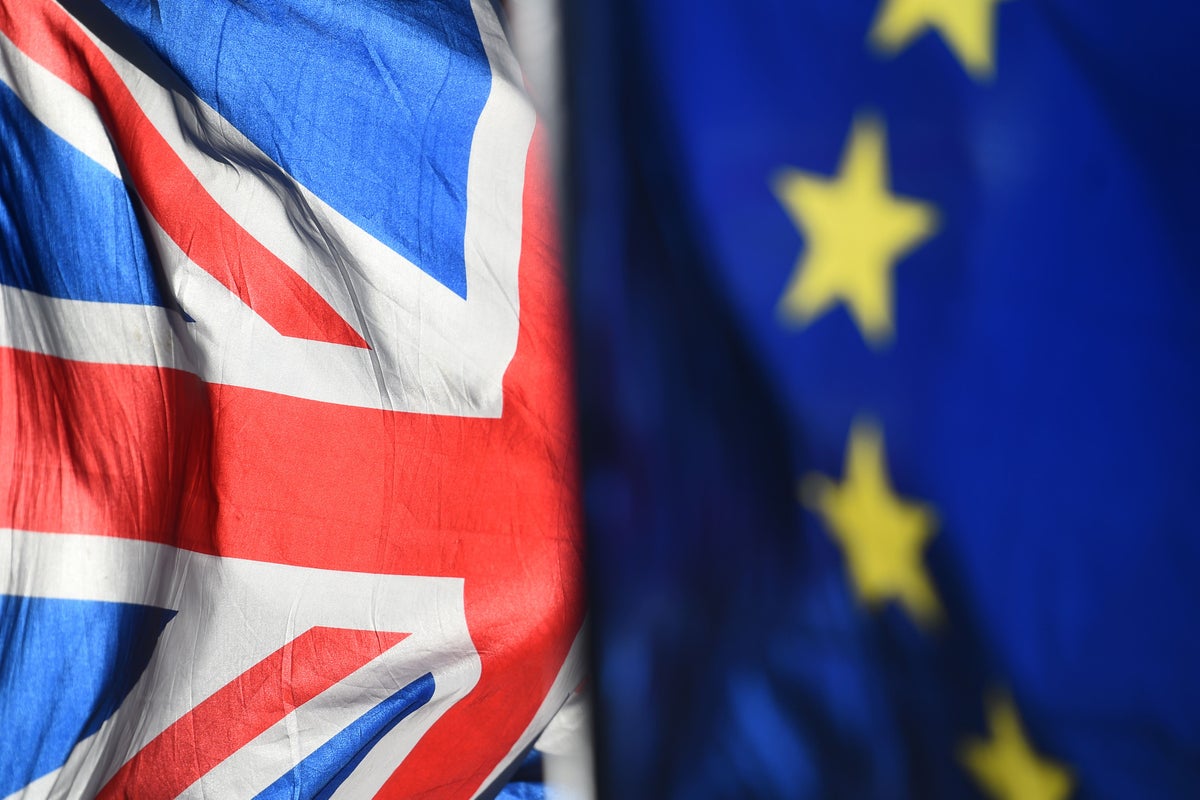
Almost two in three Britons believe Brexit has damaged the UK economy, a new poll for The Independent has found.
Some 61 per cent of voters say quitting the EU has made Britain’s economy worse, according to the Savanta survey – with only 13 per cent saying it has improved the economic situation.
The poll also revealed that most people believe Brexit has added to the UK’s mounting food-supply crisis, which has seen a “crippling” shortage of some goods in the supermarkets during the cost of living crisis.
Some 55 per cent said Britain’s exit from the EU had worsened the availability of goods, while only 14 per cent said it had improved availability.
The survey also found that 47 per cent of the public said Brexit had made their own finances worse, with only 13 per cent saying their bank balance had been boosted by Britain’s exit from the bloc.
“This poll shows that there’s a strong perception that Brexit has not gone particularly well,” said Savanta director Chris Hopkins.
“While that may not equate directly to Brexit regret, we see little evidence in the perceptions of both Remainers and Leavers that Brexit has left the UK in a better state,” he said.
The pollster said that previous surveys showed there was a perception among the public that the Leave campaign had “told more lies” than the Remain campaign both before and after the 2016 referendum.
“Perhaps it’s this sense of disingenuity that influences perceptions now, with some Leavers feeling that they were perhaps missold Brexit, even though they wouldn’t necessarily reverse their decision if a referendum came round again,” Mr Hopkins added.
The latest survey shows a hardening of views about the impact of Brexit. A similar poll for The Independent in January found that 56 per cent believed quitting the EU had made the economy worse.
There is also strong scepticism about the idea that Brexit has helped to control immigration. Some 44 per cent of voters said Brexit had made the UK’s control of its borders worse, while 17 per cent said it had improved border control.
It follows a report by Durham University that said Brexit had led to the small-boats crisis because the decision to leave the EU without a returns agreement in place had led to a “skyrocketing” increase in dangerous crossings in the English Channel.

Turning to other aspects of Brexit, Rishi Sunak is understood to be on the verge of signing an agreement with the EU in a bid to end the long-running dispute over the Northern Ireland protocol.
But he faces an uphill task in persuading the DUP to return to power-sharing arrangements at Stormont, while Tory Brexiteers are expected to rebel over a compromise deal if it maintains a role for the European Court of Justice (ECJ).
The latest Savanta poll shows a largely negative perception of the role of Brexit in Britain’s relationship with Europe, along with its wider standing in the world, more than three years on from leaving.
It found that 53 per cent believe Brexit has worsened the UK’s relationship with the EU, while 13 per cent said it had improved ties with the bloc. Some 47 per cent said Brexit had reduced the UK’s global influence, while 16 per cent said it had boosted Britain’s standing.
The past years have seen an increase in regret over Brexit, amid the deluge of data showing its painful impact on the economy and its growing unpopularity in the polls.
In December, the Centre for European Reform (CER) found that Brexit had cost the UK a staggering £33bn in lost trade, investment and growth. The CER also estimated the tax loss from Brexit to be around £40bn.
Earlier this month, Jonathan Haskell, an external member of the Bank of England’s Monetary Policy Committee, said investment had been “stopped in its tracks” by Brexit.
The official revealed that the Bank had calculated that the hit to business investment had led to a drop in productivity worth about 1.3 per cent of GDP – equal to around £29bn, or £1,000 per household.
“There is no doubt that there has been something of a decline in support for Brexit,” polling guru Professor John Curtice previously told The Independent. “The principal explanation for the shift seems to be the economic consequences of Brexit.”
The Savanta poll of 2,201 adults was carried out between February 10 and 12.







